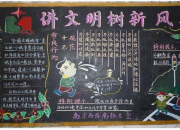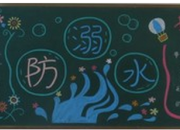九年级英语unit7课件(3)
时间:2021-08-311. I remember ______ her at the party last week.
A. to meet B. being met
C. meeting D. to have met
2. Don’t you forget ____ the lights when you leave.
A. turning off B. closing
C. to turn off D. to close
3. I regret ______ that we have no news for you.
A. to say B. saying
C. to have said D. having said
IV. Speaking
3c. Think about a time you did something even though your mom or dad told you not to do it. Share your story with your partner.
How old were you?
Did you talk back to your mom or dad?
What happened?
How do you feel about it now?
V. Homework
What did your mother do when you were a small child? Write a short passage.
Section A 3 (Grammar Focus-4c)
I. Grammar Focus
根据课本内容,完成下列句子。
1. 我认为不应该允许十六岁的孩子开车。
I don’t think sixteen-year-olds ______ __ _______ to drive.
2. 我同意。他们还不够严谨。
I agree. They aren’t serious enough.
3. 你认为应该鼓励青少年去自己做决定吗?
Do you think teenagers ______ __ __________ to make their own decisions?
4. 不,我不认同这个。青少年还太小不能自己做决定。
No, I don’t agree with this. Teenagers are ____ ______ __ make their own decisions.
5. 不应该允许青少年去做兼职。
Teenagers ______ ___ __ _______ to have part-time jobs.
6. 不,我不同意。他们可以从工作当中学到很多。
I disagree. They can ______ a lot _______ working.
7. 你认为如果不用闪光灯的话可以允许我们拍照吗?
Do you think we ____ ___ _______ to take photos if we don’t use a flash.
8. 如果不用闪光灯的话,那么拍照是可以的。
If you don’t use a flash, then it may be OK.
II. 含有情态动词的被动语态
◆ 温故 ◆
在英语中,动词有两种语态,即主动语态和被动语态。主动语态表示主语是动作的执行者,被动语态表示主语是动作的承受者。在前面两个单元我们已经学习了一般现在时的被动语态和一般过去时的被动语态,它们的结构为:are/ is +及物动词的过去分词, were/ was+及物动词的过去分词。
◆ 知新 ◆
本单元我们主要了解含有情态动词的被动语态。它的结构是什么呢?观察下面
例句中含情态动词被动语态的各种形式,然后补全结论中所缺的.内容。
【例句】
1. Many trees should be planted in the mountains.
应该在山上种许多树。
2. You can take this book home. (改为被动语态)
→This book can be taken home (by you).
3. This problem can’t be worked out very easily. 这道题轻易算不出来。
4. Must the work be done at once? 这项工作必须立即完成吗?
【结论】
A. 含有情态动词的被动语态的结构为:情态动词+___+及物动词的________。
B. 含有情态动词的主动语态变为被动语态时,要把主动语态的_____变成被动语
态的主语。
C. 变为否定句时只需要在情态动词后加________。
D. 变为一般疑问句时只需把________提到句首。
【运用】
Ⅰ. 选择最佳答案。
( ) Young trees should ________ every year.
A. be planted B. planted C. plant
Ⅱ. 按要求完成下列各句,每空一词(含缩写)。
1. We must do the work right now. (改为被动语态)
____ ____ ____ __ ____ right now.
2. Teenagers should be allowed to go out with their friends on school nights. (改为否定句)
Teenagers _________ __ _______ to go out with their friends on school nights.
III. Practice
Work on 4a.
Rewrite the sentences according to the example.
1. You must clean your bedroom every day.
Your bedroom must be cleaned every day.
2. Parents should encourage teenagers to do social work for their community.
Teenagers ________________________________________________________.
3. Can Lucy do her homework tomorrow instead?
Can ____________________________________?
4. Do you think we must keep teenagers away from the Internet?
Do you think teenagers ____________________________________?
5. Parents should give teenagers chances to make their own decisions.
Teenagers ______________________________________________________.
Work on 4b.
Fill in the blanks with the correct forms of the words in brackets.
Should teenagers _______ (ask) to move out when they start working? In many Western countries, teenagers ____________ (allow) to move out at eighteen. Their parents believe that they should ____________ (educate) to take care of themselves from a young age. This way, when they ______ (start) working they can manage their own lives. However, in most Asian societies, it is not common for teenagers to _____ (move) out. Chinese parents believe that it is better for children to live with parents who can _____ (take) care of them. But the young should then look after their parents as they get older. That is why many Chinese adults _________ (continue) to live with their parents.
IV. Homework
You and your friend are starting an English club. Make a list of rules about what should and should not be allowed.
e.g. Members should be allowed to use dictionaries.
They should only use English-English dictionaries.
Section B 1 (1a-2e)
I. Presentation
1a. Read the questions. How often do you do these things? Write A for always, U for usually, S for sometimes and N for never.
Do you ever...
1. get to class late? ______
2. study with friends? ______
3. finish a test early? ______
4. worry about failing a test? ______
5. …
II. Speaking
1b. Talk about your answers in la.
A: Do you ever get to class late?
B: Yes, I sometimes get to class late.
III. Listening
1c. Listen and circle the things in la that Peter talks about.
Do you ever...
1. get to class late?
2. study with friends?
3. finish a test early?
4. worry about failing a test?
5. …











